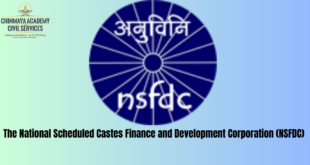- Towards the end of 2022, a hugely significant moment in the post-Independence history of Indian Muslims slipped by under the radar.
- The Jamiat Ulama-i-Hind, the oldest Muslim organisation in India, with its roots in the national freedom struggle, filed a petition in the Supreme Court of India seeking reservation for Dalit Muslims for admission to schools, colleges and government jobs.
- In a country where demands are periodically made for reservations on the lines of caste or region, not many comprehended the significance of this demand.
- It was the first time ever that a Muslim body in India was explicitly admitting to the presence of caste system among Indian Muslims — Islam, in essence, is a casteless faith with an emphasis on egalitarianism.
- The same is not necessarily true of Indian Islam; yet, this was the first time that a Muslim body made bold to embrace social reality and seek reservations on the lines of caste; Islam and caste did not seem to be an anomaly any more.
- It was another step towards Indianisation of the religion, and quite contrary to the teachings of Prophet Muhammad who, in his last sermon, emphasised the equality of the human race reminding the faithful, “An Arab has no superiority over a non-Arab, a White over Black and vice-versa”.
- Yet, here was the Jamiat tacitly admitting to the ‘superior’ status of ashrafs (Sheikhs, Syeds and Pathan, etc.) and explicitly seeking the benefit of affirmative action for lower caste Muslims (Ansaris, Saifis, Abbasis, etc.) so that they could climb the social ladder.
- The action may have stemmed from the increased activity in socio-political circles around Pasmanda Muslims, but whichever way one looks at it, the Jamiat’s petition was an undeniable acceptance of caste among Indian Muslims.
- Yes, caste among Muslims is not exploitative as in pockets of Hindu society — in early January there was a case of a Dalit man being tortured with burning logs for visiting a temple in Uttarakhand — but it is almost always present as a mark of identity, and even worn as a badge of honour in many circles.
- In the years gone by, in many towns of Uttar Pradesh and Bihar, it was not unusual to see a poor cyclist, probably hailing from the so-called lower caste, alighting from his vehicle on seeing a Syed or Pathan coming by his bike or car from the opposite direction.
- Whatever the top court’s verdict, in the years to come, the Jamiat’s petition is likely to play as important a role in the annals of post-Independence India as the acceptance of secular democracy by the Jamaat-e-Islami Hind.
A gradual change
- The Jamaat was founded in 1941 by Abul Ala Mawdudi with the express purpose of ushering in a hukumat-e-ilahiya or the Islamic state.
- Mawdudi believed that the very promulgation of the Kalima, the first tenet of Islam, made it incumbent upon the believer to strive to establish an Islamic state or god’s kingdom.
- He believed in striving for a transformation of India into a Darul Islam (land of faith), and was fundamentally opposed to secular democracy where all faiths were regarded as equal, and the law was made on non-religious lines.
- In fact, the early rules of the Jamaat made it essential for its members to oppose any legislative assemblies which made laws not derived from the Shariah.
- The pre-Independence Jamaat opposed a secular judiciary and an economic system based on riba or interest which is haraam (forbidden) in Islam.
- A person who gives and takes interest is said to be at war with god and his messenger.
- However, as Mawdudi shifted to Pakistan following India’s independence, the Jamaat too turned a new leaf and gradually came to not only accept but also embrace secular polity.
- The change was gradual, well considered and a quiet acceptance of the new reality of the country post-Partition.
- In 1961, the Jamaat sought the opinion of the ulemma on whether the faithful could participate in democratic elections, and then allowed its members to not only vote in general or State elections but also contest them, if they so wished.
- The Jamaat, in some pockets, went on to forge alliances with mainstream secular political parties, and often advised Muslims to vote for a particular candidate or party.
- After initial reservations within the organisation on the subject of voting or contesting elections which derived their rules from the Constitution of India, it was no longer considered against Islam to participate in a pluralist democracy.
- Likewise, Muslims were first permitted, then encouraged to enter government services.
- In other words, the Jamaat accepted the laws of independent India and was happy to operate within the confines of secular polity principles framed by B.R. Ambedkar, and conducted financial transactions according to the law of the land.
- It meant Indianisation of Islam was accepted by the body and the goal of establishing Hukumat-e-Ilahiya set aside.
- The organisation which once limited its in-house discourses to commentaries on the Koran and Hadith now hosts public discussions on the Union Budget and contemporary events in secular society.
Intertwining of responsibilities
- Likewise, before the 2019 general election which coincided with the month of Ramzan, the Jamiat Ulama-i-Hind advised fasting Muslims to first cast their vote in the morning before retiring to their homes for rest and prayer.
- Responsibilities as an Indian and a Muslim were intertwined. It brought back the words of Hussain Ahmed Madani, a prominent Jamiat leader, who once told the faithful, “Our religion tells us Adam descended in India.
- It was from here that his race spread. It is necessary for the Muslims to understand that this country was their old native place.” He could have well said this country and its social practices.
- Interestingly, at the just concluded three-day conclave of the Jamiat, Mahmood Madani made headlines for merely repeating Hussain Ahmed’s words. He said, “India and not Arabia is the birthplace of Islam.
- The first prophet descended here. India belongs to all of us equally. It belongs as much to Narendra Modi and Mohan Bhagwat as Mahmood.
- A day later, his uncle Arshad Madani chipped in with his take on oneness of god, stating, “What Hindus worship as Om, Muslims worship as Allah.”
- Between them, the Jamaat-e-Islami Hind and Jamiat Ulama-i-Hind, in their different ways, have managed to present a picture of Islam which is quite different from the Islam of Arabia, but a thriving entity with a uniquely Indian identity.
- It has room for caste identities, dialogue with the Rashtriya Swayamsevak Sangh, and claims on oneness of god, irrespective of differences in religion.
SOURCE: THE HINDU, THE ECONOMIC TIMES, PIB
 Chinmaya IAS Academy – Current Affairs Chinmaya IAS Academy – Current Affairs
Chinmaya IAS Academy – Current Affairs Chinmaya IAS Academy – Current Affairs



